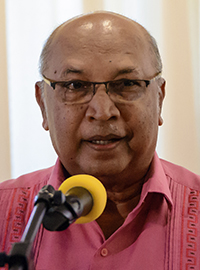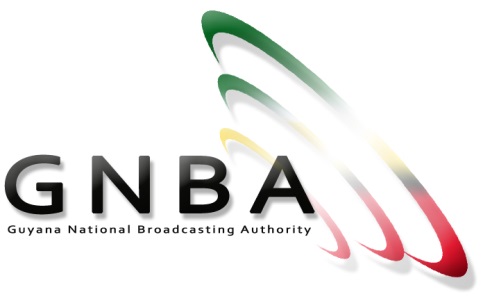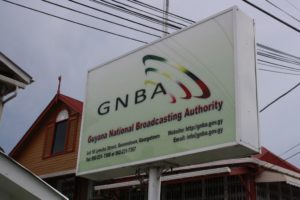More Eyes on Broadcasters
…as Broadcasting Authority rolls out Citizen Monitoring Programme
CONCERNED citizens can now play a role in reporting violations, such as obscene language and prohibited sexual and violent displays, aired by television, radio and cable broadcasters, as the Guyana National Broadcasting Authority, on Wednesday, rolled out its pilot Citizen Monitoring Programme.
The programme, which was launched at the GNBA headquarters on Lamaha Street, will be open to all, and entirely voluntary, with interested persons being able to sign up using forms available on the Authority’ website. The Authority will also provide information to the citizen monitors on what will constitute the violations that they will be monitoring broadcasters for.
A complaint form will be provided for the infractions to be recorded, and submitted. “The citizens of Guyana will be able, in keeping with the Broadcasting Act, to draw to the attention of the Authority the shortcomings and infractions committed by our Broadcasters and also to indicate whether, in the various broadcast operational zones, citizens are receiving unhindered access to information,” noted GNBA Chairman, Leslie Sobers, as he delivered remarks at the launch.

It was during a Stakeholders Luncheon last December, attended by representatives from several licensed broadcasters, that the GNBA had noted that getting broadcasters to be compliant with the guidelines on content continues to be a challenge for the authority. Broadcasters are guided by the Broadcasting Act of 2011, GNBA being the regulatory body of that Act. The Act empowers the GNBA to implement a number of sanctions to infringing broadcasters, ranging from fines to suspension of broadcasting licences.
Broadcasters are prohibited from airing certain types of material, including indecent language, sexually suggestive acts, gruesome or violent scenes, during certain periods of the day, particularly prime time. Notwithstanding restrictions, many broadcasters continue to be in violation of this.
“There’s an indication that infractions are on the rise and we are in the process of looking at those,” Sobers said. In 2018, the GNBA began implementation of a colour-coded letter system, whereby broadcasters were sent yellow, green or red written letters based on the severity of their infractions. However, monitoring the airwaves to pick up the infractions is still an area that needs to be boosted.
Red infractions attract a fine of $50,000-$100,000, while orange infractions range $25,000-$50,000 and yellow entails fines between $10,000-$25,000. Broadcasters can also be fined $50,000 for failure to provide a recording when ordered to do so. Repeat offenders are liable for suspension or revocation of licences. This initial pilot programme will run for six months before being reviewed in June 2020. Following that, a core group of citizens will be selected for further training as long term monitors.
“We are launching this initiative to test the ground to find out who are the people and where they are located who are interested in becoming citizen monitors,” said Rovin Deodat, a GNBA Board member.
“In this initial phase we [will] assess the kind of feedback we have and out of that we might find people who are capable and efficient in doing this type of work. Then we select those and give them some more skills and insight into what they’re doing.”
Deodat assured those present that every report made by citizens will be investigated to ensure the validity of the report, ensuring that malicious reports do not lead to broadcasters being sanctioned.
“When we get these complaints we treat them as we treat the ones we get from our own monitoring department. We check to ensure the complaint has legitimacy, it’s not about someone being vindictive. Once we’ve gotten that its legitimate then we follow through,” Deodat affirmed.
It was pointed out that after an infraction is cited, it is sent to an investigation department for verification of its validity. Sobers explained that, notwithstanding several stakeholders’ engagements, infractions continue to be an issue with broadcasters.
The programme is being implemented with the particular aim of focusing on those broadcasters operating outside of the primary zone, which mostly encompasses those broadcasters operating out of Georgetown. “Right now we have about a dozen monitors who can only monitor so much, and once we step out of the primary zone we enter areas we are not capable of monitoring right now. We will have more eyes, more ears, and more minds working on monitoring and ensuring that broadcasting lifts its standards and we don’t allow trash to permeate the minds of our people,” Deodat said.
This pilot programme forms part of the GNBA’s over “Strategic Plan”, which also involves more engagement with stakeholders, and educating broadcasters on the legal framework within which they operate.
Source: Guyana Chronicle



